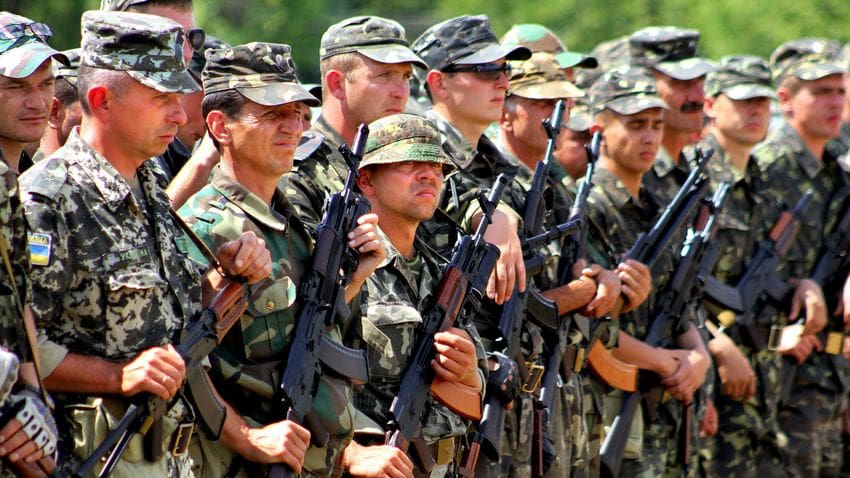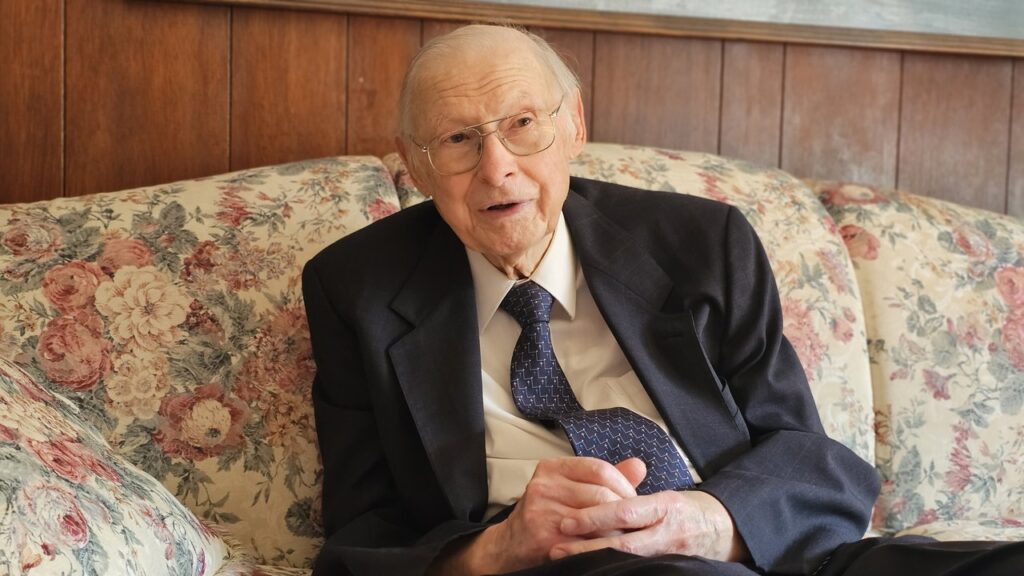The following is a translation of an article originally published on Mandiner.hu.
Viktor Traski, a Transcarpathian Hungarian mathematician, has been fighting against the Russian invaders since the start of the war. During his military leave, he spoke in an interview about what life is like for a soldier in occupied Ukraine, and also revealed how often he gets to eat some ice cream or see a dentist—as the Hungarian tabloid Blikk wrote.
The Transcarpathian mathematician, who is deputy dean and associate professor at the Department of Physics and Mathematics of the Ukrainian-Hungarian Institute of Education and Science of Uzhhorod National University, and a member of the Hungarian Academy of Sciences (MTA), left the teacher’s pulpit behind a year and a half ago to serve as a volunteer on the front in the Ukrainian 128th Mountain Assault Brigade. Recently, however, he’s been to Budapest for official business, and thus he had the opportunity to receive the MTA Arany János Young Researcher Award which he was granted a year ago. He used his military leave time to travel to Budapest, accompanied by his family.
The founders of the Transcarpathian Dragon Supplier charity interviewed him on this occasion.
Eating in the Trenches
In the interviewed it was revealed what food Viktor’s wife likes to prepare for him when he is home on military leave. It turns out Viktor likes to eat anything. He does not have any specific favourite food, but he does miss soup while on the front.
He went on to relate how and what meals soldiers eat in the trenches. As he recalled, recently they had the opportunity to have a chef set up at their post, but this is not the norm as commissary men need to keep a lot of equipment with themselves. As for the varying quality of MREs (meals, read-to-eat), he said that ‘we’ve had shipments from numerous countries, so far, the Ukrainian ones have been the best’.
Resupplying Necessities
Viktor also told Blikk how the soldiers get their important everyday necessities. According to Viktor, if a soldier needs cigarettes or toilet paper, those items are usually brought to the front by someone who has been on leave.
‘I hand in my gun, it’s taken and stamped. My bag stays with the boys.
That’s how it’s agreed on, when they have off days, they leave their bags and I watch them; if i go on leave, they watch mine. That’s how it goes,’ he answered to the question of what happens to his field gear when he goes on leave.
Keeping Yourself Clean On the Front
One of the most pressing issues of life on the front is washing and hygiene. Viktor shared that this is sometimes taken care of by trucks and containers which include showers and washing machines. However, this is not always an option.
‘So that you understand, sometimes we are in a certain place and these [trucks and containers] are 25–30 kilometres away, I mean the ones very well equipped, with washing machines. It is not worth going there, even during summer, and it is also very dangerous. It is best to stay put. The roads are under fire. In the summer, we usually try to take care of these issues where we happen to be.’
What Does a Soldier Spend His Money On?
As for the finances of a soldier, Viktor said ‘you don’t have to spend on food, there is plenty of that, and it’s quite good. However, for example, we don’t have a lot of dairy products, which I miss, so I spend on those. I spend around 600 UAH (6,000 HUF) a week on dairy’.
He added that
they only buy from locals if they are ‘at a good place’.
Treating the Injured
Health care is also provided to the soldiers, and not only for injuries suffered in action. According to VIktor, if someone develops any symptoms, they can notify their commander who will get appropriate help. ‘If it can be treated, they’ll treat it right there, if not, they’ll transport you to a nearby hospital…I’ve been to a dentist myself, for example, I was taken there’, he explained.
Viktor feels he he has got unused to everyday life, and has developed new routines instead, so it’ll be definitely hard to get back to his pre-war life.
‘You suddenly realise that out on the front, everything is different.
How can I get used to the old life again? I will only be able to answer that after I come home,’
he concluded.
Related articles:
Click here to read the original article.








